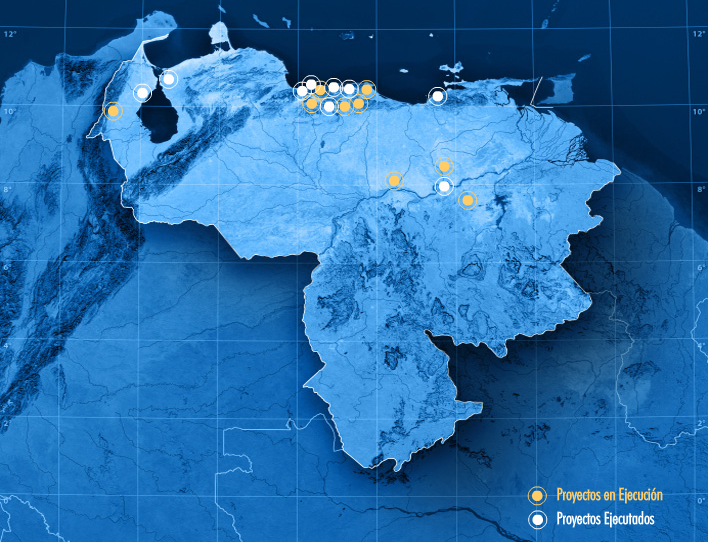Brazilians are meant to be incensed with Dilma Roussef for what they perceive as squandering public money and corruption in contracting construction companies for infrastructure projects related to the coming World Cup. The big winners are privately-held companies, among which Odebrecht, the one that has benefited the most according to Bloomberg. While I can't tell whether Odebrecht won those contracts from Roussef's government in open and legitimate bidding processes, as it should have, it is worth shedding some light on Odebrecht's operations in Venezuela.

Odebrecht refers to 21 projects, either finished or ongoing, in its Venezuela page. Most of them are massive infrastructure projects (subway systems, bridges over Orinoco and Maracaibo Lake, hydroelectric dams, etc.) worth hundreds or billions of dollars. The official database of public contractors in Venezuela contains details of 32 projects in which Odebrecht is involved. However there is scant information about exactly how much public money has chavismo given to Odebrecht over the years. Some sources say is $20 billion, though it is difficult to know for certain, as most projects incur into cost overruns due to corruption, overpriced materials, etc. Other sources have claimed that, by end of 2010, Venezuela owed Odebrecht over $1 billion (of a total $5.4 billion), and its contracts with Venezuela represented 38% of the company's operations outside of Brazil.
What is practically impossible to find is information about public calls to tender, made by the Venezuelan government, "won" by Odebrecht (note how even U.S. diplomats in Caracas use quotation marks in cables describing contracting of Odebrecht in Venezuela). Contracts appear to have been granted "a dedo", meaning Hugo Chavez deciding after a little chat with Lula, or Dilma, to grant billions of dollars worth of contracts to the Brazilian giant. In the absence of open bids for such contracts in Venezuela, just how can Odebrecht explain its "success" in our country? The answer lies in Odebrecht's contributions to Lula's Workers Party:
each real donated to campaigns of worker party lawmakers yielded 14 to 39 reais worth of contracts in less than three years... Campaign donations from five Odebrecht units grew to 37.9 million reais in 2012, from 8.1 million in 2002, according to the electoral tribunal. Odebrecht’s building unit gave 6 million reais to the worker’s party in 2013, as incumbent Rousseff, a former guerrilla who was tortured by the military regime, seeks re-election.
Lula did the bidding for Odebrecht in Venezuela, and so has Dilma, the "tortured former guerrilla" that hasn't uttered a peep about brutality and torture unleashed by Nicolas Maduro in Venezuela. Torture and other atrocities, when its done by those on Dilma's side, are perfectly kosher, you see? Odebrecht has, of course, returned the favor in kind. That's the entrepreneurial class in Brazil as well as in the rest of Latin America, where connections and nepotism trump innovation and transparency any day of the week.
Experts consulted by Bloomberg referred to Odebrecht as "the most efficient of the builders at transitioning from the dictatorship to democracy". And that efficiency is best seen in Venezuela, where Odebrecht is the power behind Itaramaty's 11-year long policy of keeping chavismo in office at any cost. In 2002-2003, when PDVSA was brought to a halt during a national strike, it was "union leader" Lula who came to Chavez's rescue by shipping gasoline to Venezuela. Lula, after all, is on record admitting to his criminal comrades at the Foro de Sao Paulo that keeping Chavez in power was part of the Forum strategy.
So can anyone expect that in Brazil, Odebrecht's fiefdom since the times of dictators, the company was not going to get the lion share of public expenditure? It is a good thing that the world is about to turn its attention to Brazil, a few ugly stories, as Odebrecht's "success", will hopefully make it to mainstream media. Whether it's Brazil, Venezuela, Argentina, Angola or Ecuador, there seems to be a stench of corruption following Odebrecht everywhere it goes.

